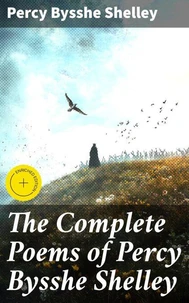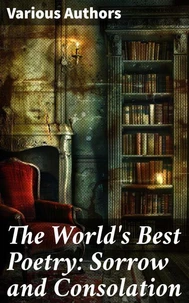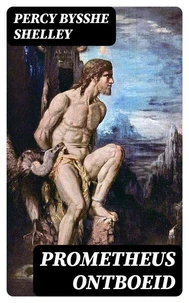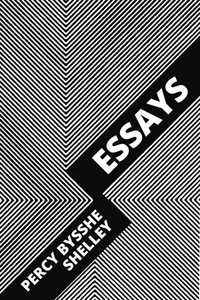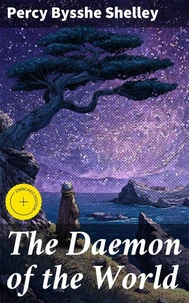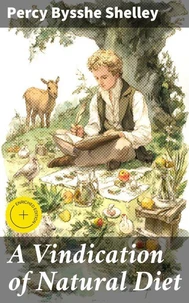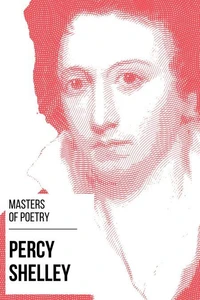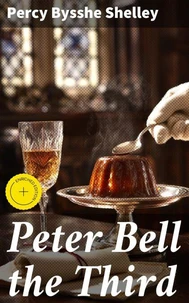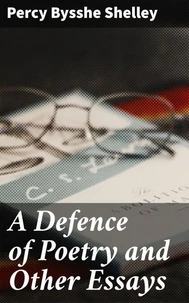A Defence of Poetry and Other Essays
Par :Formats :
Disponible dans votre compte client Decitre ou Furet du Nord dès validation de votre commande. Le format ePub est :
- Compatible avec une lecture sur My Vivlio (smartphone, tablette, ordinateur)
- Compatible avec une lecture sur liseuses Vivlio
- Pour les liseuses autres que Vivlio, vous devez utiliser le logiciel Adobe Digital Edition. Non compatible avec la lecture sur les liseuses Kindle, Remarkable et Sony
 , qui est-ce ?
, qui est-ce ?Notre partenaire de plateforme de lecture numérique où vous retrouverez l'ensemble de vos ebooks gratuitement
Pour en savoir plus sur nos ebooks, consultez notre aide en ligne ici
- Nombre de pages75
- FormatePub
- ISBN859-65--4701123-1
- EAN8596547011231
- Date de parution28/05/2022
- Protection num.Digital Watermarking
- Taille310 Ko
- Infos supplémentairesepub
- ÉditeurDIGICAT
Résumé
In "A Defence of Poetry and Other Essays, " Percy Bysshe Shelley offers a profound meditation on the role of poetry and the poet in society. Written in an elegant and polemical style, Shelley defends poetry against contemporary critics who disparaged its value, asserting that it is essential for the cultivation of moral and emotional sensibilities. The essays blend lyrical prose with philosophical inquiry, reflecting the Romantic ideals of imagination, creativity, and the transformative power of art.
Shelley's work emerges from the socio-political turbulence of early 19th-century England, illuminating the relationship between aesthetic experience and revolutionary thought. Percy Bysshe Shelley, an eminent figure in the Romantic movement, was deeply influenced by his radical ideals and personal experiences of exile and social injustice. His background in an elite school system, coupled with his early exposure to the writings of Plato and the philosophical debates of his time, shaped his belief in the necessity of poets as harbingers of change.
Shelley's passion for justice and truth is mirrored in his essays, which seek to elevate poetry as a vital instrument for progress. This book is highly recommended for readers seeking to understand the intersection of art and society. Shelley's eloquence challenges us to reconsider the power of poetry, making it essential reading for anyone interested in literature, philosophy, and the social relevance of the arts.
Shelley's work emerges from the socio-political turbulence of early 19th-century England, illuminating the relationship between aesthetic experience and revolutionary thought. Percy Bysshe Shelley, an eminent figure in the Romantic movement, was deeply influenced by his radical ideals and personal experiences of exile and social injustice. His background in an elite school system, coupled with his early exposure to the writings of Plato and the philosophical debates of his time, shaped his belief in the necessity of poets as harbingers of change.
Shelley's passion for justice and truth is mirrored in his essays, which seek to elevate poetry as a vital instrument for progress. This book is highly recommended for readers seeking to understand the intersection of art and society. Shelley's eloquence challenges us to reconsider the power of poetry, making it essential reading for anyone interested in literature, philosophy, and the social relevance of the arts.
In "A Defence of Poetry and Other Essays, " Percy Bysshe Shelley offers a profound meditation on the role of poetry and the poet in society. Written in an elegant and polemical style, Shelley defends poetry against contemporary critics who disparaged its value, asserting that it is essential for the cultivation of moral and emotional sensibilities. The essays blend lyrical prose with philosophical inquiry, reflecting the Romantic ideals of imagination, creativity, and the transformative power of art.
Shelley's work emerges from the socio-political turbulence of early 19th-century England, illuminating the relationship between aesthetic experience and revolutionary thought. Percy Bysshe Shelley, an eminent figure in the Romantic movement, was deeply influenced by his radical ideals and personal experiences of exile and social injustice. His background in an elite school system, coupled with his early exposure to the writings of Plato and the philosophical debates of his time, shaped his belief in the necessity of poets as harbingers of change.
Shelley's passion for justice and truth is mirrored in his essays, which seek to elevate poetry as a vital instrument for progress. This book is highly recommended for readers seeking to understand the intersection of art and society. Shelley's eloquence challenges us to reconsider the power of poetry, making it essential reading for anyone interested in literature, philosophy, and the social relevance of the arts.
Shelley's work emerges from the socio-political turbulence of early 19th-century England, illuminating the relationship between aesthetic experience and revolutionary thought. Percy Bysshe Shelley, an eminent figure in the Romantic movement, was deeply influenced by his radical ideals and personal experiences of exile and social injustice. His background in an elite school system, coupled with his early exposure to the writings of Plato and the philosophical debates of his time, shaped his belief in the necessity of poets as harbingers of change.
Shelley's passion for justice and truth is mirrored in his essays, which seek to elevate poetry as a vital instrument for progress. This book is highly recommended for readers seeking to understand the intersection of art and society. Shelley's eloquence challenges us to reconsider the power of poetry, making it essential reading for anyone interested in literature, philosophy, and the social relevance of the arts.


